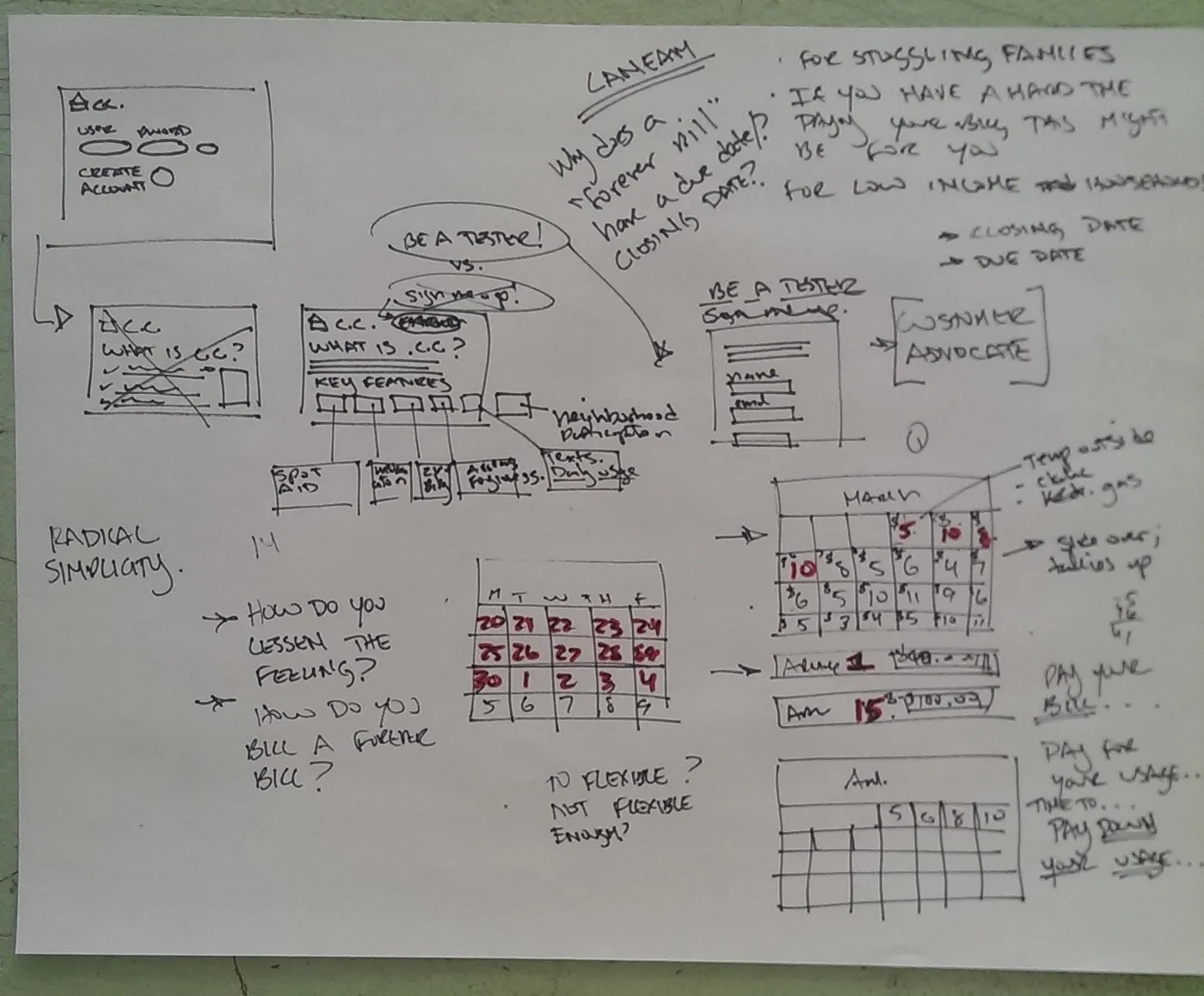


When utility customers get behind on their bills it’s expensive for everyone: customers fall into arrears and face shutoffs, utility companies shoulder overdue payments and bad debt. Nobody wins. On average, low-income households in Michigan spend one-third of their monthly income paying for energy. In Flint, Michigan, Consumer’s Energy (CE) had $94,000,000 in bad debt and it was not uncommon to find low-income customers who owed CE more money than they earned in a year.
Originally an IDEO project, Ker-twang collaborated with Consumers Energy and The Heat and Warmth Fund (THAW) to pilot ways to help low-income customers use less energy, stay ahead on their bills, and reduce costs for all parties involved.

We spent time with CE’s low-income energy customers in Flint, learning about the difficulty of paying energy bills. We developed a range of general design principles — like the importance of fostering accountability and providing meaningful feedback — that we could translate to energy billing systems. With these in mind, we designed and implemented a twelve-month pilot study with customers who could not afford their energy bills.
We tested a variety of services that tailored the utility experience to the realities of low-income customers’ lives. Services ranged from a two-week bill cycle and date-certain shutoffs to daily energy usage text messages and energy assistance in advance. We then built a prototype billing engine rather than invest in costly IT system changes, continuously conducted energy usage analyses as well as in-home qualitative research, and modified interventions that did not prove to be effective.

Despite a winter that ranked among the coldest on record, pilot participants reduced their year-over-year energy consumption by 14%, paring their yearly energy bill by an average of $338. 95% of bills sent to our pilot participants were paid in full, versus a baseline of 35%. 77% of our participants were able to go one full year without accruing energy debt.
Aspects of this work have been incorporated at multiple utilities and vendors, including the Delta Institute’s mylumin.